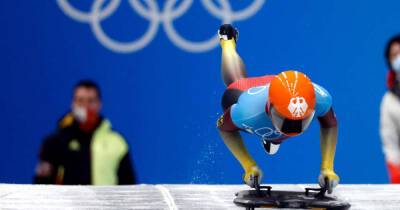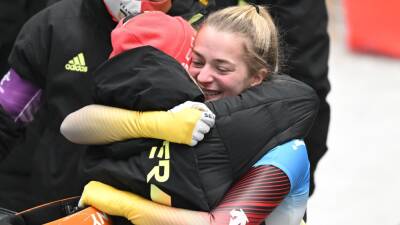British skeleton's shambolic showing at Winter Olympics descends into 'slow sleds' row
British skeleton, one of the nation's best-funded winter sports, finds itself at the centre of a row over equipment following dismally poor performances in Beijing.
Despite not boasting an actual skeleton track in the British Isles, the organisation has established itself as an Olympic medal-winning machine, taking gold at the last three Games and making the podium at five consecutive Olympics since the sport's reintroduction in 2002.
But that run has come to a shuddering halt in China this week, as Matt Weston and Marcus Wyatt finished 15th and 16th respectively in the men's event, while Laura Deas and Brogan Crowley will try for damage limitation later this evening after finding themselves at the back of the field at the half-way stage.
It prompted Deas father to declare on Twitter that British athletes' speed was being "haemorrhaged by the kit" while John Jackson, bobsleigh bronze medallist in 2014, said that whoever was making decisions over technical development had "gone the wrong way."
All in all, it marks an incredible fall from grace for British Skeleton, especially for a sport that received £6.4m in funding from UK Sport this Olympic cycle, and one that used to draw envious looks - to the point of unfounded accusations of cheating - over their scientific advancements in helmet, skin suit and sled technology. Such levels of financial backing will now be seriously in question when UK Sport decides its allocation for the next cycle.
"Something's not right," Weston, who ended a 14-year wait for a World Cup gold in November, told BBC Sport. "I think there are quite a few questions that need to be raised but equipment is definitely going to be one of them.
"We'll review everything from start to finish, how it went,




